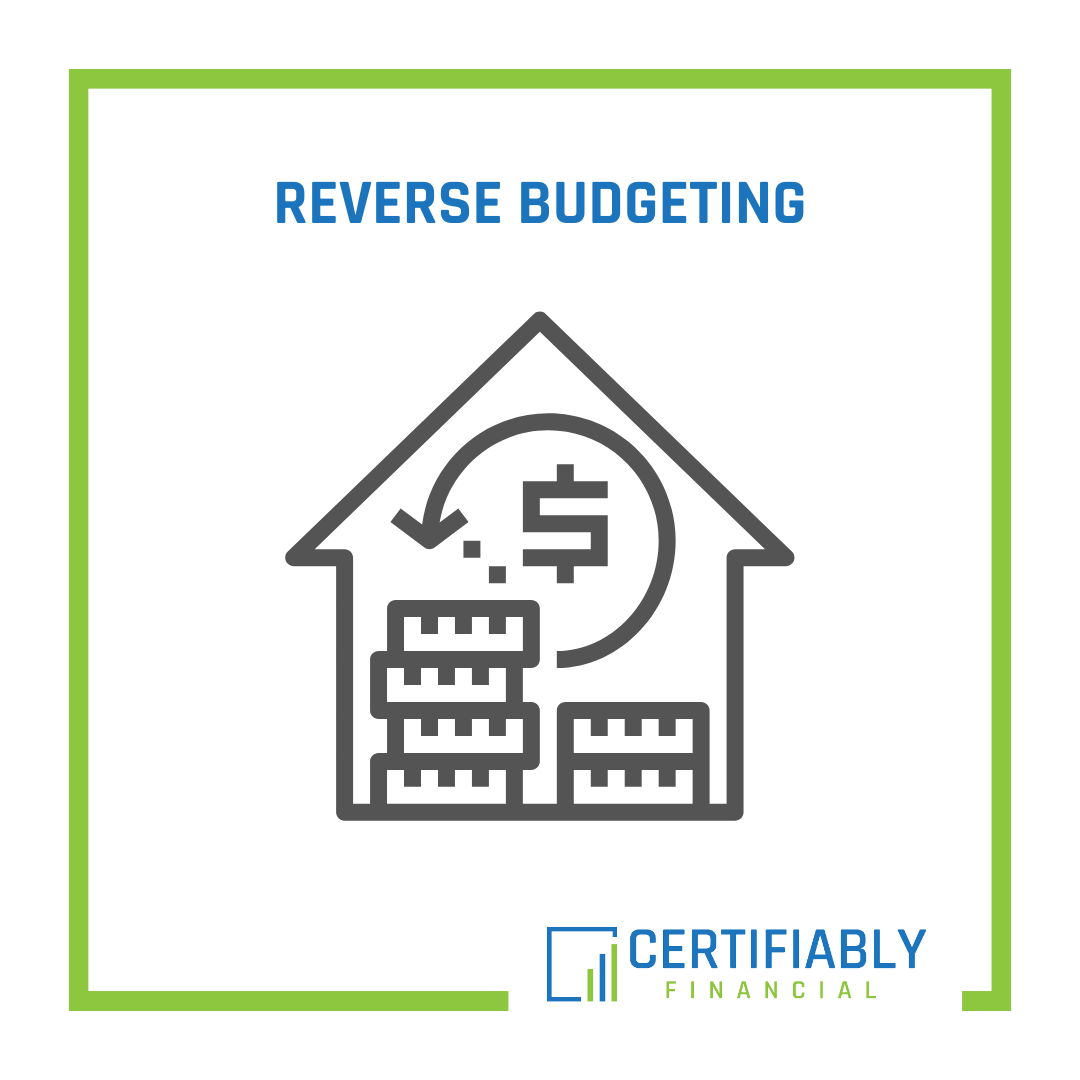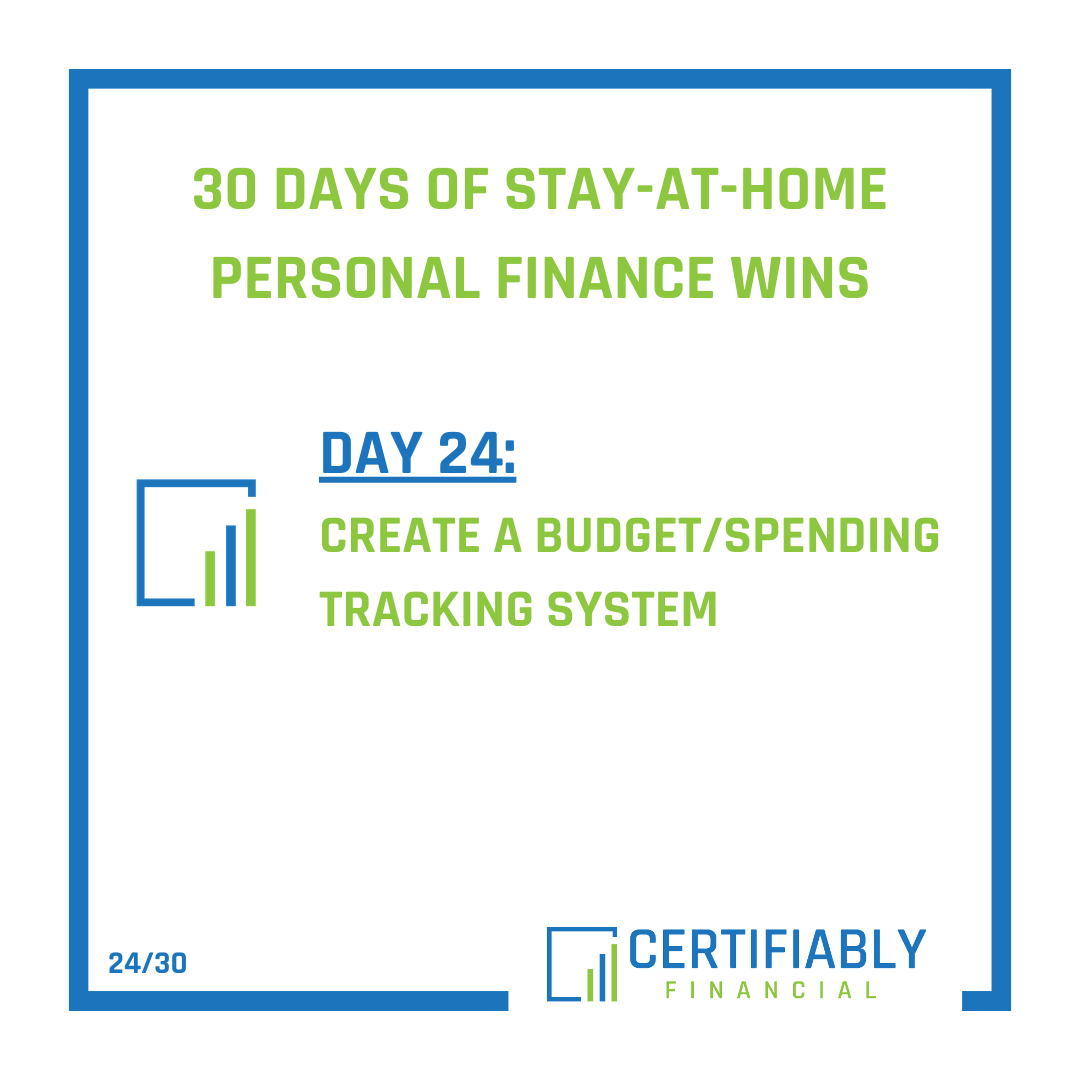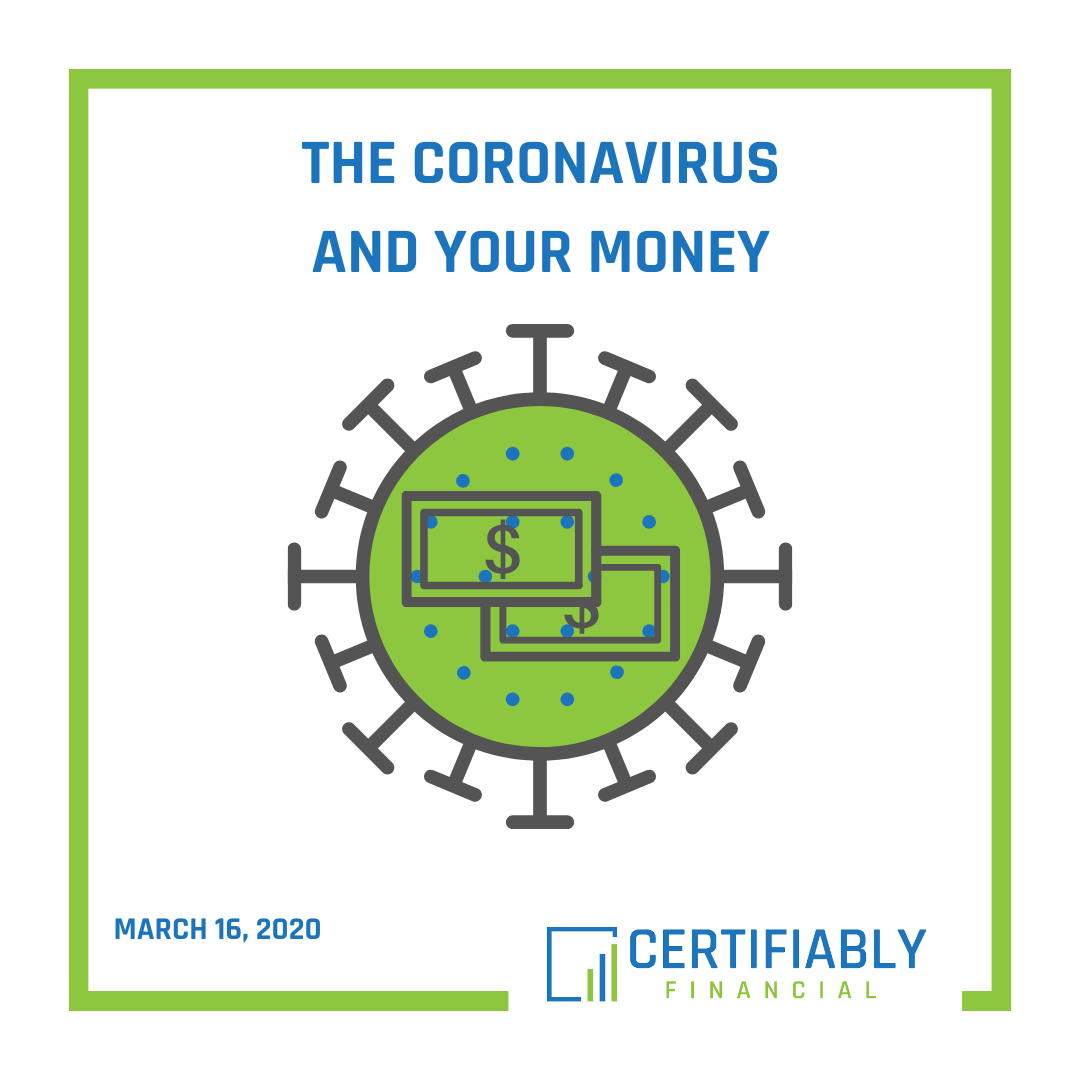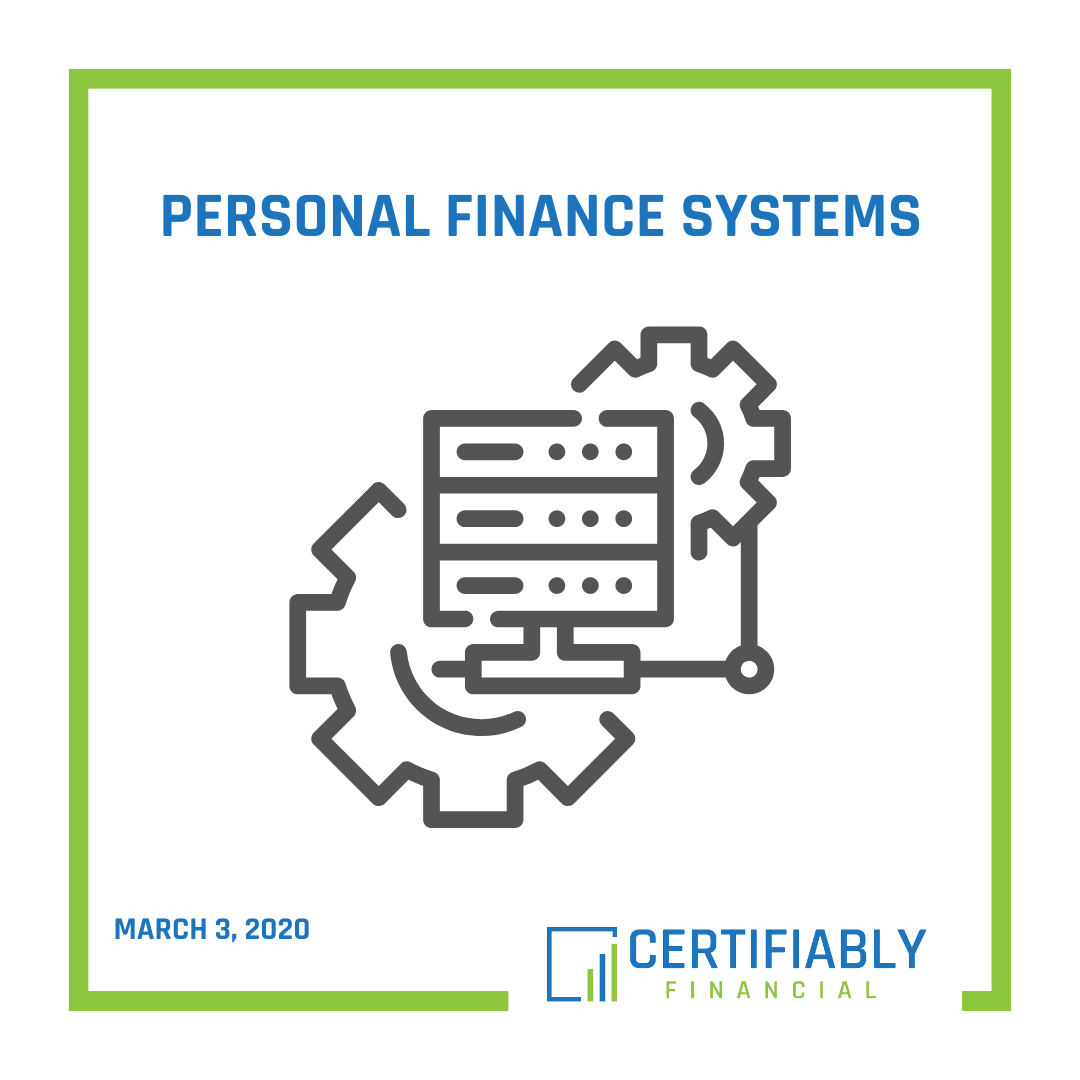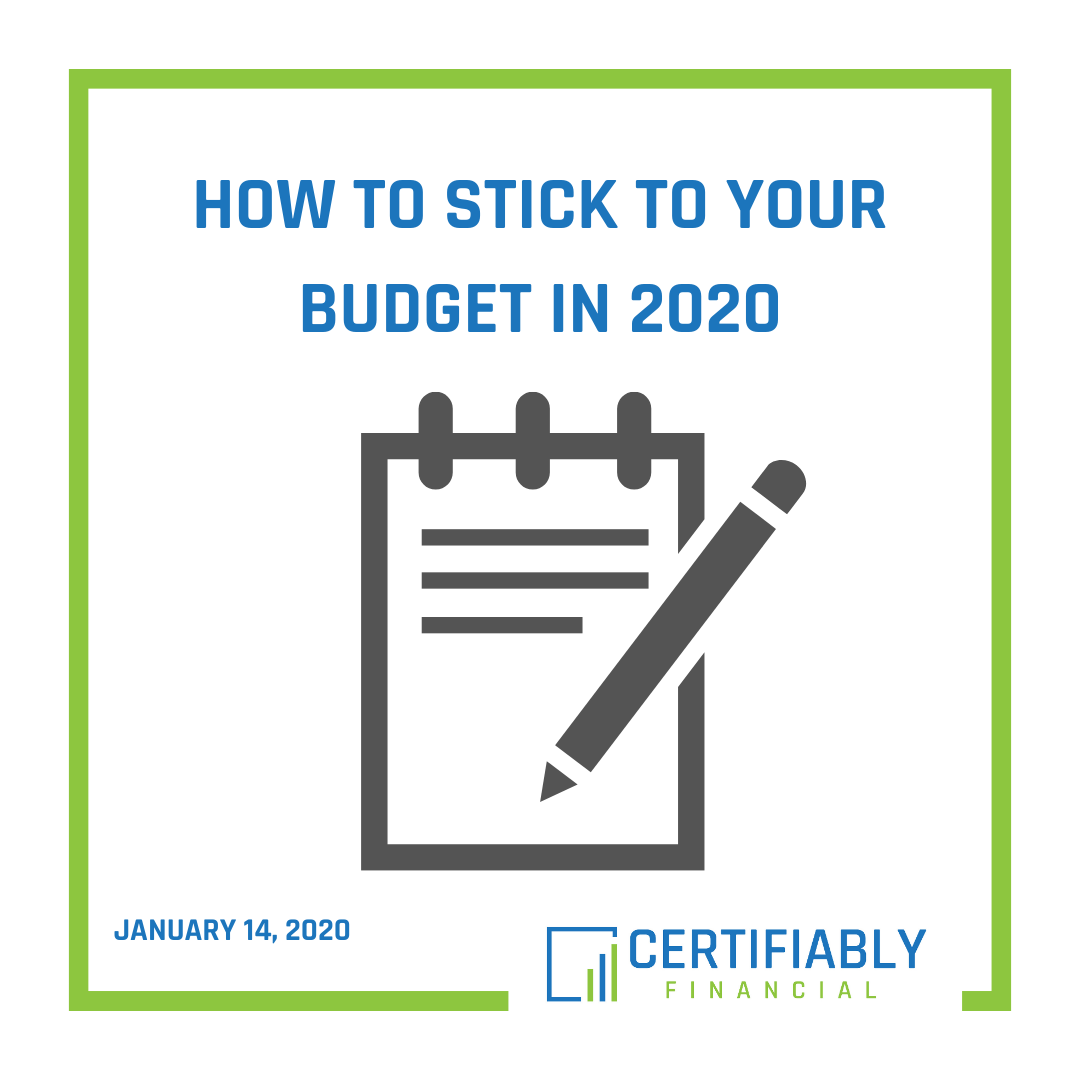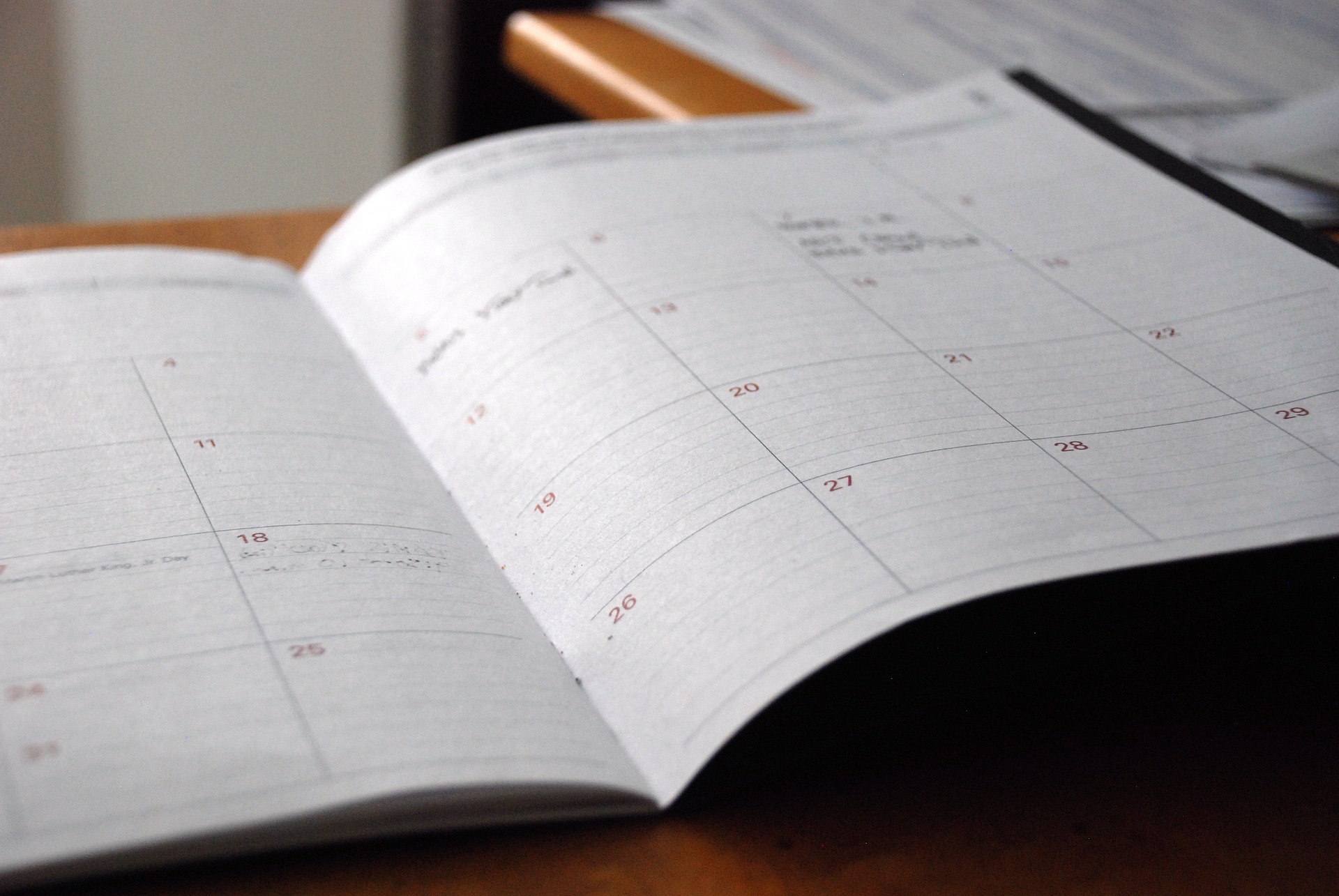In January, Amanda and I bought airfare and started making plans for a 2-week trip to Italy in May to celebrate our 1-year anniversary a little early. That fell flat on its face. Instead, last week we went to Savannah to celebrate. We went on the trip without an itinerary, list of things to do, or a budget.
Budget
Will You Be Ready For A Second Wave?
Today (May 11 as I write this), marks a significant stage in Governor Holbomb’s Back On Track Indiana plan as restaurants are allowed to reopen at 50% capacity and personal services may reopen with restrictions. At the same time, Seoul, South Korea has ordered bars and clubs closed due to the highest coronavirus case infections report in a month with over 50 cases linked to one man who visited many bars and clubs, according to the Wall Street Journal. This is after that country had previously been praised for controlling the outbreak.
Day 24 Of 30 Days Of Stay-At-Home Personal Finance Wins: Create a Budget/Spending Tracking System
What if you were able to come out of this time of social distancing and economic crisis with a stronger and healthier financial life? What if you looked at this as an opportunity to take a little bit of your extra time each day to work on your finances?
The Coronavirus And Your Money
Every day, something new comes out about COVID-19 and how it’s impacting our society. We’ve seen the financial markets experience a lot of volatility over the past couple of weeks (and it looks like there’s probably more to come), which can be scary and nerve-racking for a lot of people. It’s completely normal to feel that way given all of the news around these events and all of the different points of view we may hear. I’m sure that things will probably get scarier with more people testing positive for the coronavirus and more things shutting down to try and mitigate the spread.
Personal Finance Systems
Every day, the first thing that I do when I get home from work is unpack my gym bag and put the dirty clothes in the clothes basket, hang up the clothes that aren’t dirty and get into something more comfortable, and get everything that I need ready for the next day. Why? Because it makes my life easier.
How to Stick to Your Budget In 2020
As I’m sure you can already guess, one of the most common New Year’s Resolutions is to stick to a budget. This is a terrible goal.
Halfway Through 2019
Somehow, we’re already halfway through the year. I have no idea how that happened, but it did and there are some things that we can do now to evaluate our progress towards our goals, and get ourselves back on track if we need to, that will help to set us up for success over the next 6 months to end the year strong.
Repost: Work Together
In March of this year I wrote an article titled Work Together which speaks about how married couples can optimize their financial lives through combining their personal finances. As I think about and prepare for my wedding this weekend, this is the topic that continues to come to the top of my mind to write about. Not only that, but one of my favorite podcasts published an episode around this topic as well. When I was gathering my ideas, I remembered that this is something I’ve written about before, but I didn’t realize how recently it had been. So, since this is top of mind for me this week, I thought I’d repost the article from March with some additional commentary.
Start Simple
3 minute read
Most people have never received personal finance education and have no idea where they should start to begin creating a better life for themselves. The great thing is that you don’t have to fix everything all at once. Starting with anything and progressing incrementally should be the goal. Hopefully this post helps you figure out where you are today and what the next steps are that you can take to begin making progress in your financial life, which hopefully spills over into all other areas of your life as well.
Get Organized
Getting organized is the most basic, but also potentially most daunting task for some. Depending on how in-tune you are with your financial life (and how organized you are in general), this could be a time-consuming project or could just be some tidying up.
I’m very organized in all aspects of my life because I find that it makes things easier for me, helps me to be efficient and accomplish my goals, and relieves stress. Organizing your financial life can do the same things for you and can be your first step towards financial freedom. I’ve already written about this before, so I’ll list the three basic steps that you can take to help you start easing some stress and become more aware of your current personal financial situation:
- Figure out where you’re going to store your documents and passwords
- Gather your login information and important financial documents
- Evaluate your financial situation and set goals
With your financial life organized you’ll be able to evaluate what your current financial situation looks like and where there’s room for progress to make sure that you reach your goals. You can click here to see a list of things that you may want to gather to help you understand where you are and figure out what you need to do to get where you want to be.
Evaluate The Foundation
Once you’ve got your financial life organized, it’s time to evaluate where you are. Three of the most basic, but also most vital things that you can do to create a solid financial foundation are to establish an adequate emergency fund, make sure that you have the proper insurance coverages in place, and pay yourself first by saving for retirement and other goals before spending any of your income. If you have a significant amount of debt that you’re paying off, then you can evaluate whether you should save more or pay it off more quickly.
The process is much simpler than many make it out to be and there’s no need to complicate it more than necessary. Consistency is the hardest part for many in making changes to their personal finances. When something pushes you off track it’s best to get right back to it rather than let it derail you completely. It takes a while to form a habit, so you have to be diligent about focusing on the fundamentals and changing your actions before things begin to come naturally to you. Changing the course of your personal finances, and your life, is worth it.
Do the easy things that will provide you with the most value and bang for your buck and then you can get more complex from there.
Take the Next Step
No matter where you are in the process, do something today to take the next step towards bettering your financial life. Whether you need to get organized, increase your savings by 1%, or you’re ready to seek out a financial planner, progress is progress. Too often people wait until something significant happens in their life to consider their personal finances and the changes that need to be made. Be proactive and make sure that you’re on the right path before a life event forces you to make changes that you didn’t want to.
I Forgot
2 minute read
When you mess up your personal finances once it’s probably not going have a huge impact on your life (depending on what you do). However, once you realize that what you’ve done was wrong or stupid it could feel like the world’s coming down on you and you have no idea how you’re going to fix it. Don’t let one mistake ruin your outlook and push you into panic and misery. It’s okay to make mistakes.
Living a successful financial life isn’t about being perfect, it’s about being consistent and making progress. While missing blog posts regularly probably isn’t that serious, making poor financial decisions regularly could be. When you do blow through your budget or make a bad investment you can try to fix the situation, but don’t dwell on it and let it get you down. Doing so can lead to you giving up on trying to make wise financial decisions and only makes matters worse. Hindsight is 20/20.
Consistency Is Key
Spending over your budget or not meeting your savings target once is fine, but letting those things happen consistently can lead to big problems. This isn’t the kind of consistency that we’re looking for. The positive consistency in your financial life comes from developing positive financial habits that almost become second nature and allow you not have to think too much about what you’re doing with your money. Developing these habits can be done through creating a budget and tracking your expenses to become more aware of where your money is going, writing down your goals so that you actually know what you want your money to accomplish for you, and continuing to reevaluate where actions and your progress on a consistent basis.
On the other hand, if you’re the type of person who knows that you need someone else to keep you accountable, then working with a financial planner may be a good fit for you. Not only do they have the specialized knowledge about financial matters that you don’t have, but they can also act as a coach to you and a sounding board along the way.
It’s inevitable that you’ll make financial mistakes and that life will happen, which will lead to unplanned financial decisions. But that’s exactly why we go through the process of financial planning and making sure that you set yourself up with the proper controls such as an emergency fund and insurance coverages for when the time comes. While you can’t control when emergencies will surprise you, you can make sure that you change your actions and don’t let poor financial decisions continue to happen consistently.
Do yourself a favor; don’t dwell on your financial mistakes. Develop good financial habits that you can practice consistently.

